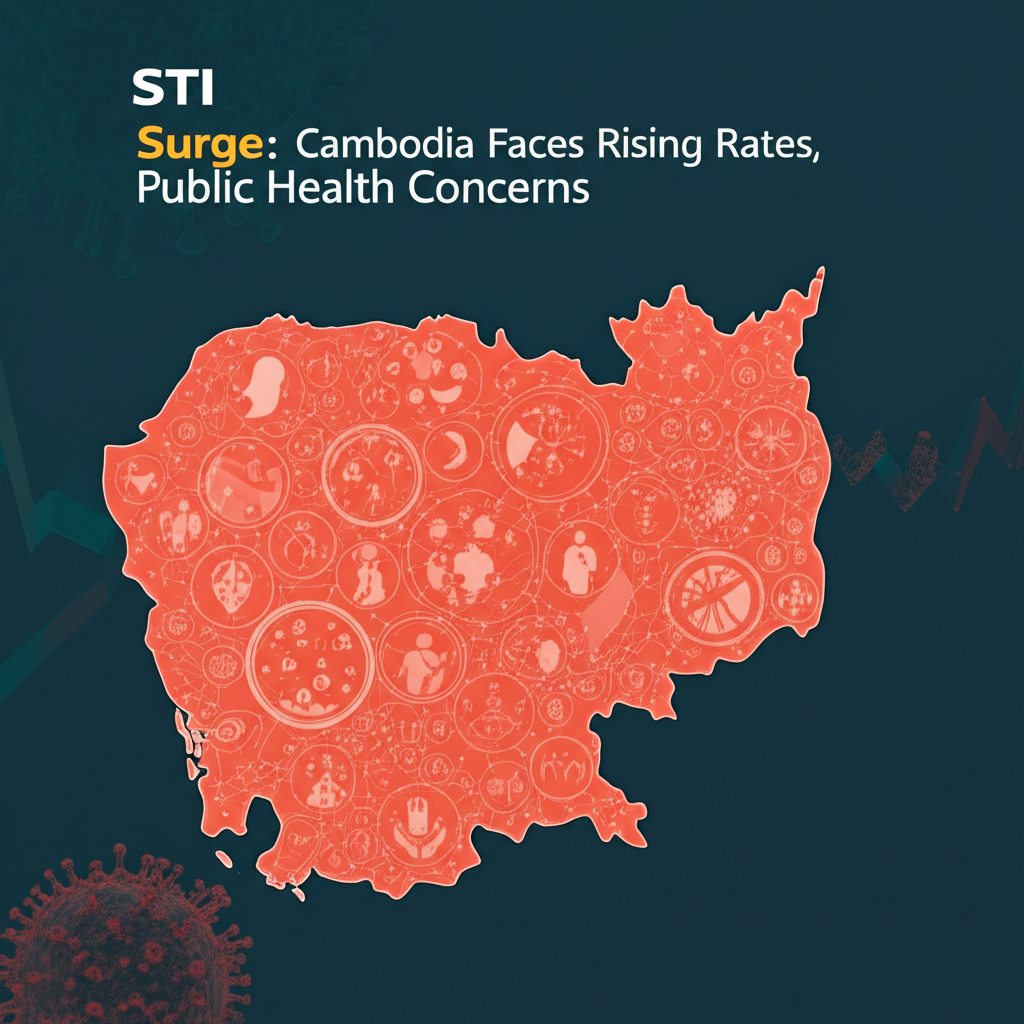STI Surge: Cambodia Faces Rising Rates, Public Health Concerns

Cambodia is facing a growing public health challenge as sexually transmitted infections (STIs) continue to rise across the country. Data released this month by the Ministry of Health indicates a significant increase in reported cases of several STIs, including syphilis, gonorrhea, and chlamydia, over the past year.
This surge is prompting concerns among health officials and leading to renewed calls for increased prevention measures and improved access to testing and treatment. According to the Ministry of Health report, the rise in STIs is particularly noticeable among young adults aged 15-24.
This demographic is often less informed about safe sex practices and may be more vulnerable to infection due to factors such as unprotected sex and multiple sexual partners The report also highlights disparities in access to healthcare, with individuals in rural areas and marginalized communities facing significant barriers to testing and treatment The implications of this STI surge are far-reaching
Background
Untreated STIs can lead to serious health complications, including infertility, chronic pain, and increased risk of HIV infection.
Furthermore, the economic burden associated with treating these infections can strain the healthcare system and impact overall public health outcomes
The Ministry of Health is working to address these challenges through a multi-pronged approach that includes public awareness campaigns, increased access to condoms and other preventative measures, and improved testing and treatment services We are deeply concerned about the rising rates of STIs in Cambodia," said Dr. Srey Leakhena, a leading public health expert at the National Center for HIV/AIDS, Dermatology and STDs.
It is crucial that we redouble our efforts to educate young people about safe sex practices and ensure that everyone has access to the healthcare services they need to prevent and treat these infections
" Several factors are believed to be contributing to the rise in STIs in Cambodia
These include increased mobility and migration, which can lead to the spread of infections across geographic areas; a lack of comprehensive sex education in schools and communities; and stigma surrounding STIs, which can deter individuals from seeking testing and treatment The COVID-19 pandemic also disrupted healthcare services and diverted resources away from STI prevention and control programs, potentially exacerbating the situation To combat the STI surge, the Ministry of Health is collaborating with international organizations and local NGOs to implement a range of interventions
These include: expanding access to STI testing and treatment services, particularly in underserved communities; strengthening surveillance systems to better track the spread of infections; conducting public awareness campaigns to promote safe sex practices and reduce stigma; and providing training to healthcare providers on STI prevention and management Looking ahead, it is essential that Cambodia invests in long-term strategies to address the underlying factors driving the STI epidemic This includes strengthening the healthcare system, improving access to education and information, and addressing social and economic inequalities that contribute to vulnerability By working together, the government, healthcare providers, and community organizations can help to curb the spread of STIs and protect the health and well-being of the Cambodian people The future depends on immediate action and sustained commitment to preventing, testing, and treating STIs effectively
Furthermore, targeted interventions are needed to reach high-risk populations, such as sex workers and men who have sex with men These groups often face significant barriers to accessing healthcare services and may be disproportionately affected by STIs
By providing culturally sensitive and tailored services, healthcare providers can help to reduce the spread of infections and improve the health outcomes of these vulnerable populations Finally, it's imperative to foster open and honest conversations about sexual health to reduce the stigma surrounding STIs and encourage individuals to seek timely testing and treatment
